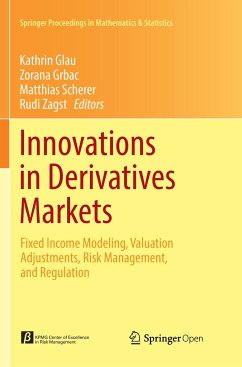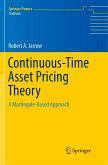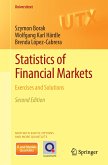This book presents 20 peer-reviewed chapters on current aspects of derivatives markets and derivative pricing. The contributions, written by leading researchers in the field as well as experienced authors from the financial industry, present the state of the art in:
- Modeling counterparty credit risk: credit valuation adjustment, debit valuation adjustment, funding valuation adjustment, and wrong way risk.
- Pricing and hedging in fixed-income markets and multi-curve interest-rate modeling.
- Recent developments concerning contingent convertible bonds, the measuring of basis spreads, and the modeling of implied correlations.
The recent financial crisis has cast tremendous doubts on the classical view on derivative pricing. Now, counterparty credit risk and liquidity issues are integral aspects of a prudent valuation procedure and the reference interest rates are represented by a multitude of curves according to their different periods and maturities.
A panel discussion included in the book (featuring Damiano Brigo, Christian Fries, John Hull, and Daniel Sommer) on the foundations of modeling and pricing in the presence of counterparty credit risk provides intriguing insights on the debate.
- Modeling counterparty credit risk: credit valuation adjustment, debit valuation adjustment, funding valuation adjustment, and wrong way risk.
- Pricing and hedging in fixed-income markets and multi-curve interest-rate modeling.
- Recent developments concerning contingent convertible bonds, the measuring of basis spreads, and the modeling of implied correlations.
The recent financial crisis has cast tremendous doubts on the classical view on derivative pricing. Now, counterparty credit risk and liquidity issues are integral aspects of a prudent valuation procedure and the reference interest rates are represented by a multitude of curves according to their different periods and maturities.
A panel discussion included in the book (featuring Damiano Brigo, Christian Fries, John Hull, and Daniel Sommer) on the foundations of modeling and pricing in the presence of counterparty credit risk provides intriguing insights on the debate.








